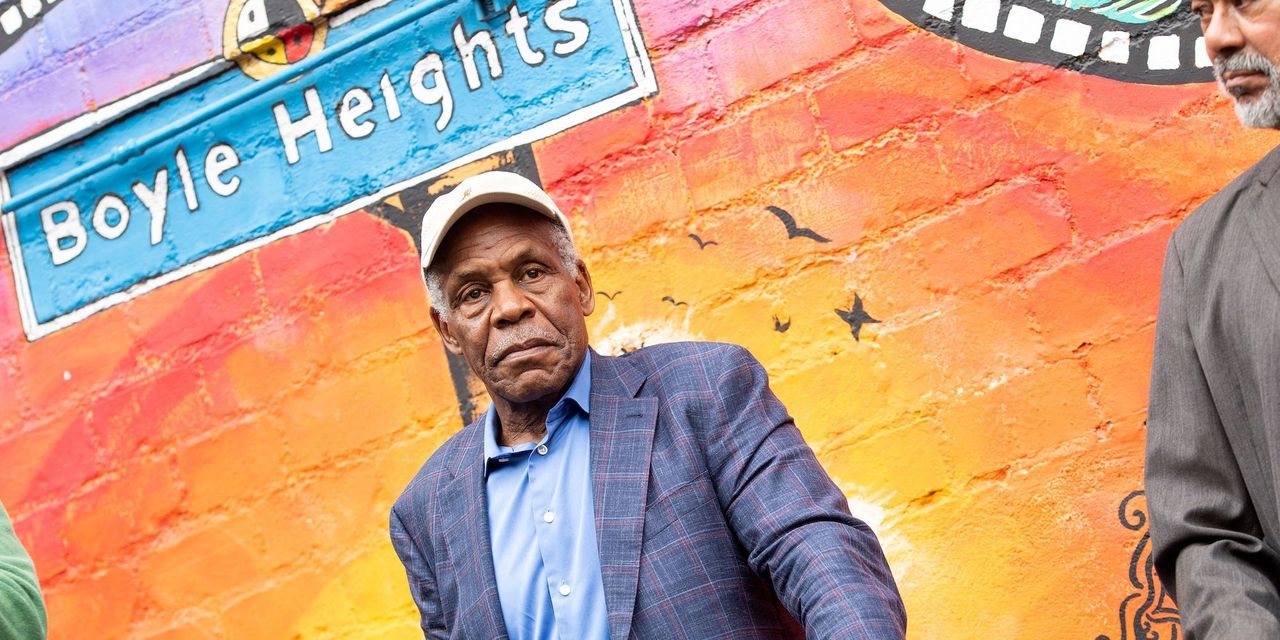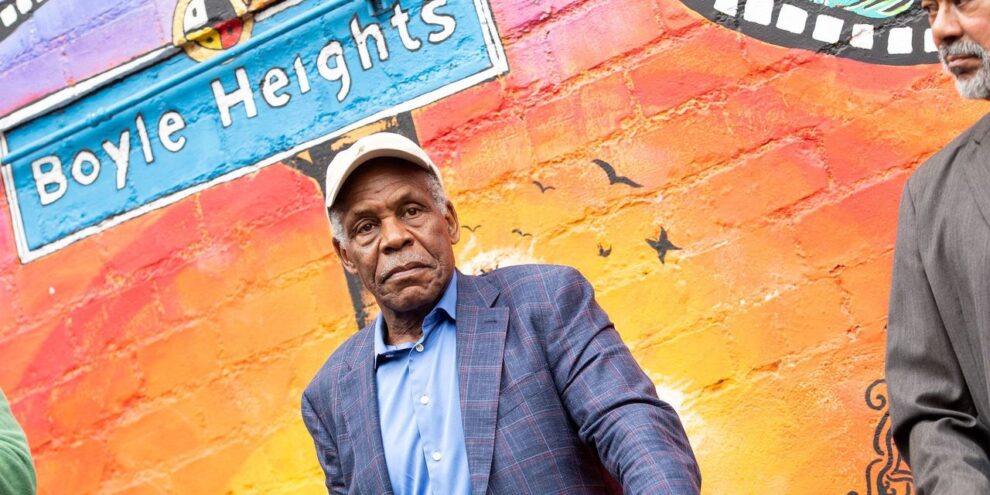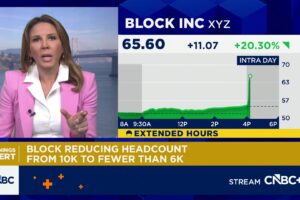
This article is reprinted by permission from NextAvenue.org.
Very few actors can have their career immortalized in one line. Danny Glover, through his work as Roger Murtaugh in four “Lethal Weapon”movies, will always be associated with — get ready—“I’m too old for this s**t.” That’s the mixed blessing of starring in a mega-successful franchise that includes the “Citizen Kane” of buddy cop movies.
The irony is Glover should be celebrated for the breadth of his work—“Gone Fishin’” and “Beloved” came out within a year of each other. At 75, he’s still working at a robust pace. His page on the Internet Movie Database features 201 credits, roles that carry from the art house (“Be Kind Rewind”) to the multiplex (“Dreamgirls,” “Jumanji: Welcome to the Jungle”) to your den (“Lonesome Dove,” “ER”). Go through the list. Roles jump out like old friends in a photo album.
It’s easy then to overlook Glover’s activism. He’s a UNICEF ambassador and has served as a Goodwill Ambassador for the United Nations Development Program, focusing on poverty, disease and economic development in Africa, Latin America and the Caribbean.
On his website, just one cause Glover embraces isn’t listed. Four are. Signs of the humanitarian and activist pop up in his résumé, especially as the co-founder of production company Louverture Films; acclaimed films covering such topics as the Black Power movement and families in the Deep South will be featured in a Film at Lincoln Center retrospective in early December.
In January 2022, Glover will receive the Jean Hersholt Humanitarian Award from the Board of the Academy of Motion Picture Arts and Sciences because “[his] decadeslong advocacy for justice and human rights reflects his dedication to recognizing our shared humanity on and off the screen.”
In his most recent role, the earnest low-budget drama, “The Drummer” (released on demand on Nov. 9), Glover plays Mark Walker, an activist attorney and Vietnam vet based in Watertown, N.Y., who assists two young Iraqi War soldiers hobbled with PTSD and eager to leave their stifling military obligations. It’s an empathetic and humane performance, one that provides a window into the dark side of patriotism.
Glover, who also served as the film’s executive producer, says it “has something valuable to talk about and for us to think about it.”
So does Glover. I was told I had 15 minutes, perhaps 20, to talk. We spoke for more than an hour. Most established actors treat media interviews with a reserved warmth, as if at any moment a journalist will ask for their agent’s email address. They ache to leave; their publicists, forever wary of running tape recorders, more so.
Glover came with an intellectual rigor that was energizing and a bit intimidating. The topics ping-ponged — from Karl Marx and Abraham Lincoln’s correspondence, to China and South Africa’s modernization to Martin Luther King’s approach to social justice in America. The talk was less about “The Drummer” and more about his path through this world.
The interview has been edited for clarity and length.
Danny Glover: A passion for activism
Next Avenue: I know activism and acting are your passions, but activism is who you are, right?
Danny Glover: My mom and dad came to the post office in 1948, the same time. They immediately became involved in the postal union. There was a mass employment of African-Americans. My parents became activists in their own way through their union, through organizations. My mother was regionally involved in the National Council of Negro Women, the NAACP.
As a kid, [there was] discourse around my house [in San Francisco] and conversations and meetings around my house, because they were part of the postal union, but also meetings around my house because they were members with the NAACP and they were active in their particular moment.
I’m the oldest child. So I was closest to them becoming politicized, not only with the civil rights movement but as local as the post office. I thought the two were synonymous. I didn’t walk around with union emblems on or a union jacket on, but it was a part of a conversation.
Some of my dad’s best friends and closest friends were also guys who worked with him at the post office. There’s a different generational responsibility that takes on with my father, in this minor way, through being unionized and everything that he probably would not have accrued had it not been for working at the post office.
My grandmother was a midwife for years. It provided my mother with different opportunities that it didn’t provide her first cousin. My grandmother said, ‘None of my kids are going to pick cotton. My kids are going to school in September.’ When the sharecropper came around with the wagon to pick them up to go the field, he addressed my grandfather: ‘Where them kids at? It’s not raining outside.’
My grandmother said, ‘My kids are in school. When there’s school, my kids don’t work in the fields.’ The overseer turned to my grandfather and said, ‘Man, you better teach your woman how to talk to white people.’
That’s why my mother graduated from college. Her brothers and sisters went to college as well. That’s a paradigm shift.
My parents went on in the world. They ended up in San Francisco. My dad said, ‘We’re going back to Detroit. I’ve got a job waiting for me there.’ My mother said, ‘You’d better find a job here. We’re not going nowhere. This is God’s country.’
[Laughs] To use my mother’s vernacular. It was the best decision that was made in [my dad’s] life, and he didn’t have to make it. She made it.
I come from strong, matriarchal lines. It’s the women who made the major decisions, whether it was my grandmother or my mother.
In the movie’s press notes you say, ‘My brother was a Vietnam vet, given the recent announcement that there are more veterans suicides than soldiers killed in Iraq makes the film ‘The Drummer’ more timely than ever.” How did he shape your views?
My brother was in the Tet Offensive. Nineteen years old. My brother died at 50 years old, probably because of [chemicals]. It affected his life. He would wake up in the middle of the night with nightmares from that experience. I never talked to him about what he saw in terms of life and death. He would tell me stories about guys he knew who, when it became a month before they were going home, they would not leave their barracks. The anxiety and anticipation of something happening — I don’t know that experience. How you carry that level of fear around with you.
I remember something someone said to me during my brother’s passing: ‘Your brother saw things so we didn’t have to see them.’ I kind of carried that with me through my own character [in “The Drummer”] and through the men I was trying to save in the film. I view that as a way of looking at that, because you don’t know. You don’t see it. We don’t know what war is. We have the luxury of making movies about it, but we don’t know.
Striving to make an impact
Do you think that’s why maybe the travails of soldiers, the PTSD that they suffer, gets lost in the shuffle in terms of current events and what happens every day?
Outside of us caring about troops, historically we’ve shown that that is outside the hyperbole and propaganda. We don’t have the massive mandates in the past that we’ve had to go to war. Some of us are trying to figure out what the Korean War was about. War is a tool for expansion — physical, political and military expansion.
How do we reverse all these ideas that have been institutionalized, whether it’s how many of us see the military or treat the environment?
I think we understand our limitations. The question is, in the most minute way, how do we fight on every level we can to make this place sustainable — not just for a few, but sustainable for everything? Is that possible, is the question. You have to believe it is. Because if we fail, we have no place else to go. You’re going to have enormous disruption.
I think in all humility, I’m just here to be the best example I can be as a citizen, and that is to recognize injustice and be a part of changing that. I’m just hoping we all live our life in the service of creating a better world.
Why do you think more people don’t recognize it?
They do it every day in their lives! I believe that we [do]. In every single way — the way we raise children, when we try to teach them about themselves, about their responsibilities as human beings. All of these movements, whether it’s environmental or justice.
You might like: What’s worth streaming in November 2021: ‘Cowboy Bebop,’ ‘Hawkeye,’ ‘Wheel of Time’ and much more
I want to believe as I take my breath every morning that people around me are doing that. I feel confident. I don’t have a crystal ball, I don’t know what the future is, but in doing something, there’s a reaction. And the chain reaction humanizes us in so many different ways.
Pete Croatto’s interviews, essays, and features have appeared in an array of publications, including the New York Times, the Christian Science Monitor, Publishers Weekly, the A.V. Club, and Good Housekeeping. His first book, “From Hang Time to Prime Time: Business, Entertainment, and the Birth of the Modern-Day NBA,” will be released Dec. 1 by Atria Books, an imprint of Simon & Schuster. Follow him on Twitter, @PeteCroatto.
This article is reprinted by permission from NextAvenue.org, © 2021 Twin Cities Public Television, Inc. All rights reserved.
More from Next Avenue:










